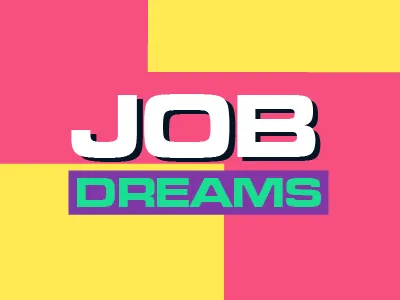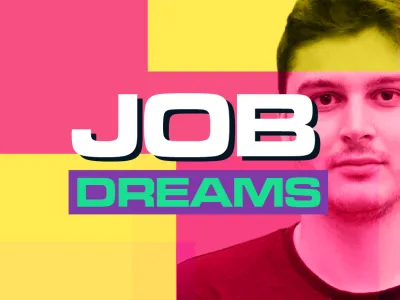
How To Land Your First Job
Include this article in your Skills Builder Journal. It could help you develop... 
Right now, there are roughly 800,000 young people not in education, employment or training. And if anyone knows about lowering that stat, it’s Laura-Jane Rawlings, CEO of Youth Employment UK. Passionate about tackling the problems young people face, we spoke to her about the tips you need to conquer the world of work.
Know where the career advice is at
“Take a look at Youth Employment UK, there’s a huge library resource of advice, guidance, tips, content and lots of information; about different careers, sectors, volunteering, social action, interview prep, what to do if you don’t know what to do...
There’s so much advice out there and we’ve pulled that into our skills and careers resources to make sure everybody has got good information regardless of how good school or college was at giving them that advice.”
Don’t underestimate work experience
“It helps you in so many ways; from learning what you don’t want in your career to how to work in a professional environment. And it gives you something to talk about in interviews.
It’s often not a young person’s fault that they’re not getting work experience if schools don’t offer it… but it can actually take loads of different formats. So actually that can be babysitting, having a part-time waitressing job, it can be washing cars or being creative and entrepreneurial. Volunteering is another great way of gaining work experience.”

Be proactive
“Go and talk to people in your networks, create a CV, and take it around and see what work experience opportunities you get. Even if the longest you can get is a day or two’s work shadowing in their offices, you’ll still get something valuable out of it.”
Do your research
“Know which experiences offer you what, so that you can make an informed choice. It’s about going out there and really researching the different pathways to the job, career and outcome that you want.”

Don’t rule out apprenticeships
“Imagine leaving school at 18, going into work and having a training degree that the employer is paying for – all while getting work experience and being paid to do a job at the same time.
There are so many apprenticeships now available that you can almost get to the top of any career you can think of via an apprenticeship, just as you can by going to university.”
Avoid the common CV mistakes
“How we present ourselves, how we show our professionalism is really important. So if someone can’t spell check their own CV, or get it checked by somebody else, they’re not showing me their professionalism.
We’ve had people send CVs without reading our job criteria or how we’re asking them to apply. They haven’t tailored it to us or had a look at our website to see what we’re about as an organisation – and shown us in their CV or covering letter how they match that. And I’m afraid employers can’t afford people who do things half-heartedly.”

Prepare thoroughly for interviews
“Research the company before you go in and also the people – look them up on LinkedIn so you’ve got a really good idea of who they are. It shows interest and enthusiasm.
Then use our website to read up on the top tips to get through an interview. There are loads written by young people, sharing their experiences. So research and research. And maybe do some practice questions with someone who will help you.”
Consider social action
“All social action is really good. It helps young people show that they care about their community, their own self-development and they recognise their part in this inclusive world.
Young people have told us that it looks good on their CV, helps them build skills and confidence, plus it helps other people. The rewards are huge and employers really love and respect it.”

Don’t expect your first job to be ‘the one’
“When it comes then to having the ‘perfect’ job, that fulfilling career role, you’ll probably have 4 or 5 jobs before you get to it. I don’t think you leave education and fall straight into the perfect career.
You have to learn about the world of work, different sets of skills and behaviours and have different experiences. And all of that shapes you into – eventually at some point in your career – finding the perfect job.”
Saying that, don’t settle for anything
“Young people need to have realistic expectations about finding a perfect job straight away. But I think they should absolutely hold out for a good quality job, with a youth-friendly employer that’s going to look after them. Don’t settle for those not paying fairly or unpaid internships. Get a good quality job. But you might have to wait for the big perfect career.”
Ready to take the world of work by storm? Find all the tips, tricks and advice Laura-Jane mentions on Youth Employment UK.




